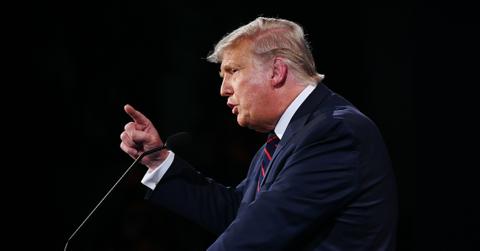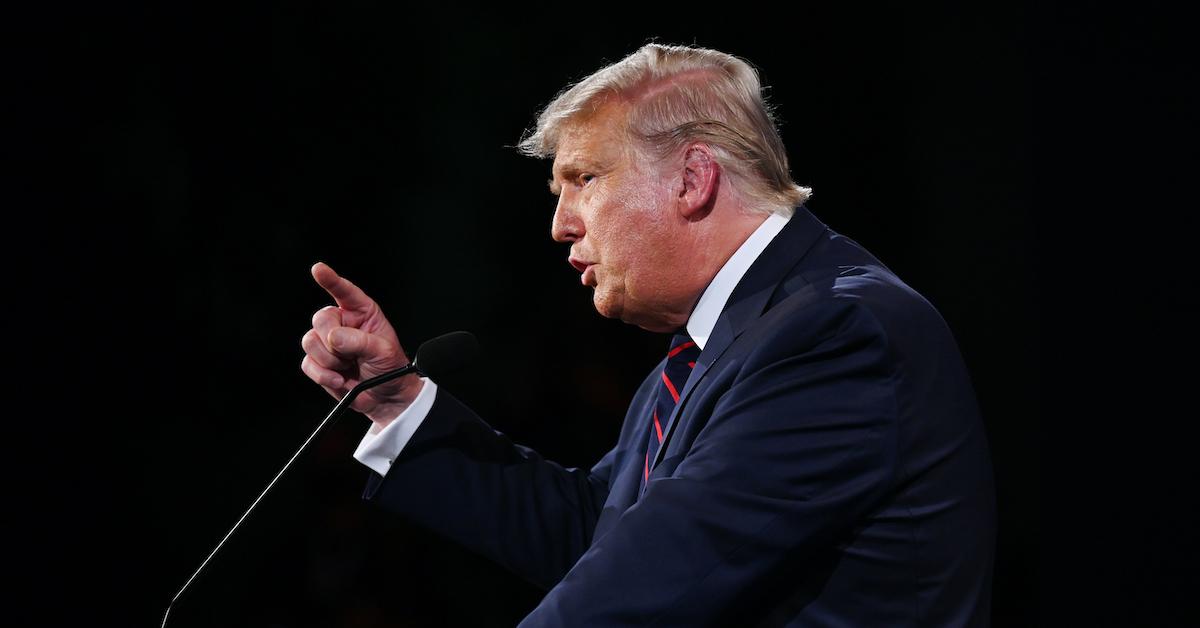Is the U.S. Really Leaving the Paris Climate Agreement on Nov. 4?
Here's what you need to know.
Updated Jan. 20 2021, 9:45 a.m. ET

When Donald Trump announced his intentions to withdraw from the Paris Climate Accord just a few months into his presidency, citizens were devastated, but also slightly comforted by the fact that the U.S. wouldn’t truly be eligible to withdraw from the Paris Agreement until Nov. 4, 2020, which happens to be the day after Election Day.
But just as suddenly as Nov. 3 crept up on us, so has Nov. 4, leaving many Americans wondering: Is the U.S. really leaving the Paris Agreement on Nov. 4, 2020?
Is the U.S. leaving the Paris Agreement on Nov. 4, 2020?

On Nov. 4, 2019, the Trump administration officially filed the paperwork for the U.S. to leave the Paris Climate Accord — three years to the day after the agreement went into effect worldwide on Nov. 4, 2016, and the earliest day the administration was legally allowed to file this intent.
It takes one year for a country to be able to leave the Paris Agreement after filing that paperwork — so unfortunately, yes, that means that as of Nov. 4, 2020, the U.S. will no longer be a party to the Paris Agreement. Sigh.
Once the U.S. formally withdraws on Wednesday, it will no longer have to stick to the emissions guidelines it set for itself in 2016, and it will no longer have to report its emissions to the UN. This is calamitous, mortifying news — not just for Americans, but for people over the world, considering how much power the U.S. holds.
The U.S. is the No. 2 CO2 emitter in the world, second only to China, according to the Union of Concerned Scientists. Basically, the U.S. is not in any position to be revoking climate regulations (though the Trump administration has made a game of rolling back as many as possible over the past four years).
That being said, not all hope is lost.
What is the Paris Climate Agreement?
The Paris Climate Accord, aka the Paris Agreement (or any combination in between), is a massive agreement reached by the nearly 200 parties of the United Nations Framework Convention on Climate Change (UNFCCC). As of November 2020, 189 of those parties (representing most countries on Earth) have ratified the agreement, becoming official parties of the agreement.
Under the framework of the Paris Accord, each country basically promised to accelerate policies, actions, and investments to create a low-carbon future and fight the climate crisis. Each country must report its emissions to the UN, but each country can set different nationally determined contributions (NDCs) as part of the pact, with a uniting goal of keeping the global temperature rise this century below 1.5 degrees Celsius (2.7 degrees Fahrenheit) above pre-industrial levels.
That said, it’s disappointing that the Trump administration went to such great lengths to pull out from the agreement entirely when it could have simply revised the U.S.’s goals as part of the agreement, ABC News pointed out. Not only will this hurt the environment in numerous ways, but it could cause a chain reaction with many other consequences, as explained by Foreign Policy.
Specifically, this could affect our trade deals with other countries (France generally does not trade with any countries outside of the Paris Agreement), and even inspire (rather, what’s the opposite of inspire?) other countries to do less to uphold their ends of the agreement, since one of the top polluters in the world is not participating any longer.
Imagine a few middle schoolers decide to horribly trash their classroom, but the teacher gives the entire class detention to clean everything up. One of the kids who participated in the trashing — the one responsible for trashing the second most amount of stuff — decides not to show up to detention, leaving everyone else to clean up his mess. They’re not going to be very motivated, are they?
Would Joe Biden rejoin the Paris Agreement?
As part of the Biden climate task plan, Joe Biden has promised to recommit the U.S. to the Paris Agreement on his first day as president, should he win the election. “A Biden Administration will,” Biden’s website reads, “Re-enter the Paris Agreement on day one of the Biden Administration and lead a major diplomatic push to raise the ambitions of countries’ climate targets.”
After all, Biden was in office as Barack Obama’s vice president when Obama signed the U.S. into the Paris Agreement. “Biden was there alongside President Obama to rally the world to get to Paris; and he will be prepared on day one of his presidency to take it to the next level,” according to Biden’s website.
How long will it take to rejoin the Paris Agreement?
Michael Burger, executive director of Columbia University’s Sabin Center for Climate Change Law, explained to InsideClimate News that rejoining the Paris Agreement would actually be a pretty quick process, should Biden win. He would just need to write a letter to the UN Secretary General and submit a new national emissions reduction pledge — 30 days after that, the U.S. would be an official member of the Paris Agreement again.
So if Biden wins the Nov. 4 election, Americans needn’t worry about our involvement in the Paris Climate Accord (though we should still definitely worry about the climate crisis). But if Trump manages to win a second term, we’re looking at four years of being one of only two G20 countries (20 of the most powerful countries on Earth, representing 80 percent of the world’s economic output) to not be part of the pact.
While that would be terrible news for the country and the planet as a whole, the good news is, states and cities can set their own climate goals and policies, similar to the ones laid out by the Paris Agreement. So, should Trump win the election and keep the U.S. out of the agreement, hopefully more states and cities will step up to the plate and revamp their climate goals ASAP. Make sure to vote.